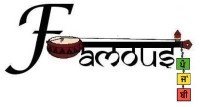>Founder of the T-Series music label Gulshan Kumar was born as Gulshan Dua into a Punjabi Arora family on 5 may 1956 in, Delhi. His father was a fruit juice seller in the Daryaganj market in New Delhi. At the age of 23, started a shop selling records and cheap audio cassettes . Gulshan Kumar later started his own audio cassette company known as “Super Cassettes Industries”. While the Hindi music industry lacked the popularity amongst the masses , Gulshan Kumar made a major impact with his label. He did so as he knew the demands of the general public and successfully infused life and energy into the music industry.As his business grew Kumar began to sell his cassettes abroad as well and created a market for Hindi music. Later, Kumar got involved in producing movies and was instrumental in launching several well known celebrities of today. He also ventured into Noida, near Delhi.His first movie was ,”Lal Dupatta Malmal Ka” ,in 1989 .The movie’s songs and melodious tunes were a hit . In 1990 , the blockbuster film , “Aashiqui” was released starring Rahul Roy and Anu Agarwal. His next two movies, “Bahaar Aane Tak” and “Jeena Teri Gali Mein” were commercially flop films but gained popularity for their music. The following year “Dil Hai Ki Manta Nahi”, featuring Aamir Khan and Pooja Bhatt, grossed average earnings , but its music was a big success. Some of the movies that were released in the following years include “Aye Milan Ki Raat” (1991) , “Meera Ka Mohan”(1992), “Jeena Marna Tere Sang”(1992),”Jai Maa Vaishanav Devi”(1995),”Char Dham”(1998) and “Papa – The Great”(2000). Gulshan Kumar in his movies introduced talented singers such as Sonu Nigam, Anuradha Paudwal, Vandana Bajpai, and Kumar Sanu amongst several others.Apart from being a prominent personality, Gulshan Kumar set an example for Indian businessmen by being a philanthropist. He set up langars and bhandars for pilgrims visiting the holy shrine of Shri Mata Vaishno Devi. Gulshan kumar got involved with the Mumbai Underworld which was known for financing movies in the industry. But he refused to comply to their extortion demands. Gulshan Kumar was shot dead outside Jeeteshwar Mahadev Mandir in Andheri West suburb of Mumbai city on August 12, 1997. Nadeem of music-director duo Nadeem-Shravan was accused for planning the assassination but in 2001 Abdul Rauf confessed on receiving money for assassinating Gulshan Kumar. Rauf was sentenced to life imprisonment in 2009 and not a death sentence as the prosecutors failed to provide evidence of him being a contract killer. Gulshan Kumar was cremated in Delhi, as per his family’s wishes. After his demise, his son , Bhushan Kumar took control in 1997 . Just like his father’s farsightedness and ability to capitalize on small opportunities , Bhushan Kumar kept himself educated of the latest innovations and technological advancements enabling him to propel the company to greater heights. Today the music company has ventured into not only acquiring soundtracks but also in new media revenue streams like mobile VAS, on-line digital, TV, IPTV, FM & Satellite Radio licensing . Currently T-Series is the largest producer and publisher of music and videos in the country , it has the largest distribution network comprising of over 2500 dealers . T-Series captures 60% of the Indian music market and exports music to 24 countries across six continents.
- sss – December 13, 2015
- BBC Documentary on Samjhauta Express Lahore – Delhi – August 17, 2015
- Saina Nehwal wins silver – August 17, 2015
- Narendra Modi visits Masdar City – August 17, 2015
- ‘Ki Banu Duniya Da’ Gurdas Maan feat. Diljit Dosanjh | Jatinder Shah | Coke Studio @ MTV Season 4 – August 16, 2015




